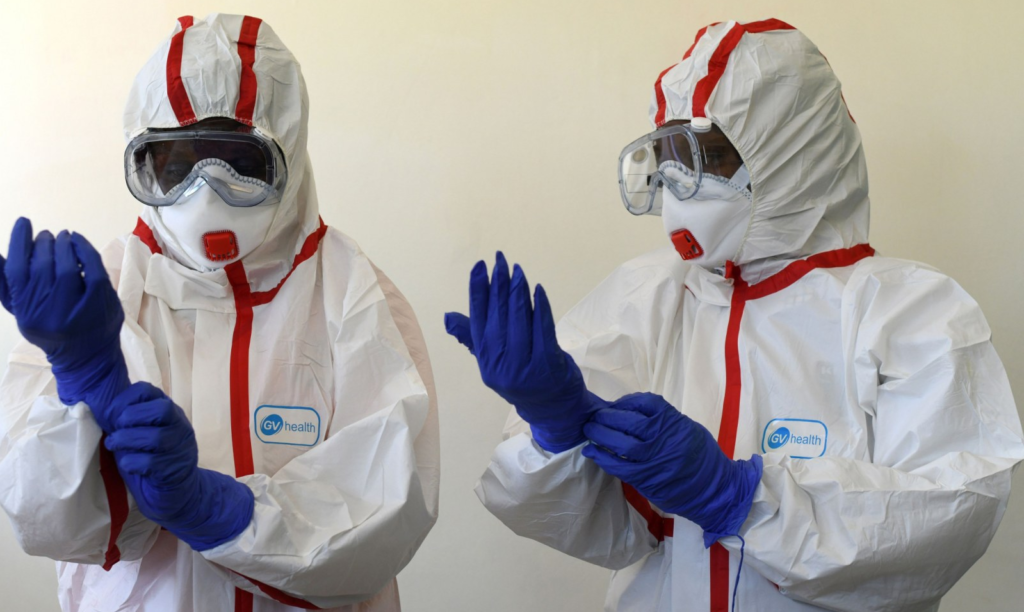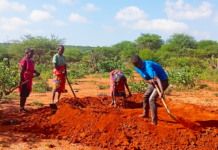By Daniel Kitwa
When it comes to the severity of black swan events to global economies, certainly COVID-19 tops the charts. This has left no doubt that the world economy is staring at possibly the worst recession yet. For those who may not be aware of the term, a black swan event is defined by scholars as an extremely rare occurrence that has widespread effects once it does happen.
A few events in world history definitely fit the bill of black swans. These include the dot com crash, the 2008 financial crisis, Zimbabwe’s hyperinflation, U.S. 9/11 terror attack and the recent Brexit vote including the political uncertainties that followed. Some pundits have even gone further to enlist Donald Trump’s shock election win in 2016 as a possible Black swan given his seemingly unconventional leadership style and twitter prone policies, unlike past U.S. presidents.
However, with that said, none of these difficult past experiences have shocked the world’s socio-economic fabric like the COVID-19 pandemic for the following simple reasons
FACTS
- The fact that the health of the human race is at stake meant that everything has had to literally stop to allow the world to refocus attention on preserving life. This includes halting things like school, church, work, travel, trade and even politics.
- The fact that the risk occurred almost immediately hitting almost all countries at once in varying degrees has stretched public resources to unimaginable proportions. This means that the help developing countries often get during other pandemics such as Ebola, famine, and genocides may not be quickly forthcoming given the same overwhelming challenge is facing other established economies who sadly may not be equally doing a better job of dealing with the crisis.
- The fact that no one knows when it will end. This is a big one, even the best of our analytics do not seem to predict when this nightmare will end. Some say it could be weeks away others even several months. The long time lag in a possible vaccine or cure medication makes COVID-19 our new normal. Additionally, having even the most well researched economic projections may still not accurately quantify the economic impact of the virus. This means that corporate executives, business leaders, and politicians are at best just making strategic decisions on data that is rapidly changing that may be more like trying to read a nuclear science book in a foreign language you don’t understand.
That said, let’s the issue closer home and critically look at the sectors that will be most affected

So who are the biggest losers?
Real Estate: The Kenyan real estate sector was already undergoing a fall in prices in the recent quarters. Some experts say this was due to a glut in the property market that led to a 10-year bull run whose luck was to evidently end at some point. Alternatively, some alluded to the fact that the housing solutions didn’t fit market needs such as the deficit in low-cost housing solutions, and few affordable-modern student housing. Moreover, COVID-19 is going to have an adverse impact in a number of areas like a fall in rental income driven by the disruption in the mortgage-related pipeline, decreased foreign direct investment as investors pursue flight-to-safety investments which are typically away from emerging markets as well as reduced slow-down in travel which normally provides the much-needed feedstock for up-market housing options for expatriates and Kenyans returning home. In a nutshell, we’re just seeing early days with respect to price corrections in the property market.
Banking and traditional financial services: Given that the pandemic has virtually affected multiple sectors of the economy, banking will certainly not be spared; though ideally, they would be due to their diversified loan books. Since the banks largely finance manufacturing, agriculture, tourism, and other key economic drivers, my take is that the banks’ weighted average performance this year will possibly be a proxy for the country’s overall GDP growth. However, tier 2 and 3 banks may be more adversely affected compared to tier 1 players. This is because their loan books are much heavily weighted to SMEs and secured and unsecured retail clientele. It will be important to see the mid-term impact of their overall liquidity and capital adequacy should this crisis persist.
In addition, other financial services will definitely be impacted directly or indirectly due to the beating in banking. For instance, defaults on car and property loans will definitely lead to delayed premiums or policy non-renewals of the respective insured assets. Another class of financial providers that will be affected may include fund managers, for example, account holders of money market funds may seek to withdraw their investments to cover their own cash flow challenges that may include in the extreme, offsetting the reduced income from salaries where one lost their job. Pension funds may also experience withdrawal claims triggered by reduced income or job loss which effectively lowers the assets under management and consequently the capital base needed to fund growth.
Travel, tourism and service sectors: Historically income from local tourism has largely helped the sector mitigate lost revenue from foreign tourists especially during off-seasons, election years and in months following terror attacks due to the travel advisories that follow. However, this is the first period where both local and foreign tourism bookings are not forthcoming. Additionally, Kenya as a business hub has enjoyed hosting numerous international conventions, conferences, and seminars. These events would normally bring large group bookings for hotels and consequently income for service related providers such as airlines, taxis, catering, video/photography and event organizers.
From the above, the sector is definitely moving into unchartered terrain and one ripe for urgent government support. This support can include a relook at tourism levies, taxes, and other subsidy support mechanisms.
The creatives: Over the last few years, the previously misunderstood creative industry has birthed a booming gig economy that has created new jobs that have contributed positively to the economy. These jobs include entertainers such as musicians, producers, dancers, poets, DJs, MCs, stand-up comedians, athletes, and actors. That said most of these earn their incomes through holding live shows, concerts, doing product promos for corporates and by gracing events like weddings, company launches, and roadshows. With the fact that social distancing is the new normal, these creatives would need to rely on their alternative revenue streams that involve tapping into the virtual world such as content downloads, views, royalty payments, and subscription-based incomes.
So what factors increase the financial strain of business during this pandemic?

In addition to the above industries, other sectors may be affected if they fall into one or more of the following broad categories; –
They produce discretionary products: During this time, most consumption spending will be skewed towards the essentials such as food. This means certain discretionary products may take a hit as households re-budget and allocate spending. For instance, one may opt to go to the barber or salon once a month instead of every other fortnight. Additionally, the betting industry will also grind to a halt given that it is both a discretionary sector and is directly impacted by the freezing of sporting events. This certainly would massively impact the sales cycles of such businesses.
That has a large fixed cost base: A business with a significant proportion of fixed overheads might find it difficult to allocate these costs onto shrinking revenue centers. For instance, business models that require large rental space such as car yards that display vehicles for sale may find it difficult especially since car purchase may be viewed as discretionary as well as the fact that asset financing may be hard to come by given that banks traditionally become more risk averse during exceptional events.
That has longer working capital cycles: A business that traditionally has long working capital cycles can only mean one thing, the cycle gets longer. Such businesses can optimize their cash position by maximizing collections from receivables in the short to medium term.
That normally experiences peak demand in Q1 and Q2 periods: Businesses that typically have high demand in the first half of the year may miss a critical uptime given that the pandemic and its aftermath are likely to linger at least in the first half of 2020. An example of such is the floriculture sector whose exports to European markets normally peak in Q1 and Q2. Also, certain agricultural produce that’s dependant on first half-year weather conditions may experience downsides that might affect the agri-businesses and value chains that back them.
What about the biggest winners?
Health products: This includes prescription medication as individuals stock up fearing for the shortage. Additionally, demand for sanitizers, soap, masks, and other hygiene-related products as expected will be high at least in the short term. In the medium term, we’re also going to see increased funding allocation by governments including Kenya, towards medical research, and procurement of specialized medical equipment to beef up the stretched healthcare systems.
Virtual gaming/e-sports/digital content: With the doing away of all forms of physical entertainment, there are huge opportunities for the virtual world to meet this demand. Here content providers such as Netflix and the like have a role to play. Virtual gaming content and e-sports would be a suitable fit for the youthful population. In addition, content can also be educational given the temporary closure of schools.
Tele-conferencing: The corporate world has already started adapting to the “work-from-philosophy” in the wake of the pandemic. So we’re going to see new growth for tele-products like Zoom, Google-hangouts, Microsoft Teams, Skype and the like. Churches are also tapping into Facebook live features to reach their faithful. This new way of working as strange as it is to some at the beginning might be business as usual even after the pandemic.
Data providers, data/cybersecurity, digital payments, and cloud storage: With an increased virtual footprint, demand for internet data is only going to go up. This demand for data might drive up the demand for underlying infrastructure that needs to support virtual teams. This includes new subscriptions for cloud storage services, increased digital B2B and B2C payments via mobile money, fintech and the like as well as increased protocols around cybersecurity to limit downtimes and losses due to cyber-crime.
My take is that Corona Virus offers a huge though painful lesson for businesses to relook at their business models, maintain liquidity and enhance resiliency. Another take away is the fact that the globalization of trade has also brought about the globalization of risk; what began as a flu-like fever in Wuhan China is now not only a global health pandemic but also, an economic roller coaster. Thus the future is full of uncertainty and disruption. It may be COVID-19 today, tomorrow it will be something else.
The writer is an Energy Finance Professional
LinkedIn: here















Nice piece!Great content!
Super interesting read. t’s good to see there are some winners out of this tragedy. This crisis will surely change the way humans interact and behave in the future. These changes are scary and fascinating at the same time. Anyway, thank you very much for this enlightening piece, Mr. Kitwa.
Thank you
Thank you for this brilliant article Daniel.
Also gives heads up to millenials on where to reorient their career plans. Change management will be a key area in this regard for those who are involved in communications and Programme management for example. But more broadly, the digitalization of our world will further increase. Only those who have managed to secure a smart career move will enjoy it tomorrow.
Thank you Mila. Indeed the pandemic is an eye opener to how broadly our future economy and other aspects are impacted including career decisions.
This is a wonderful masterpiece Daniel. One of the best reading I have gone through during COVID-19 lockdown.
Thank you Tom
Such a great Article Daniel
Thank you sir
Comments are closed.